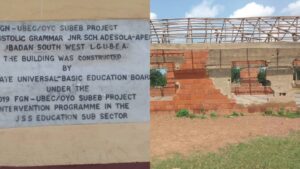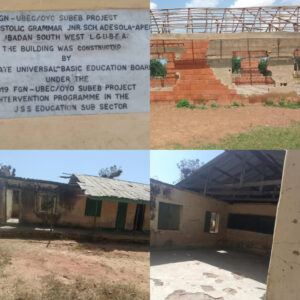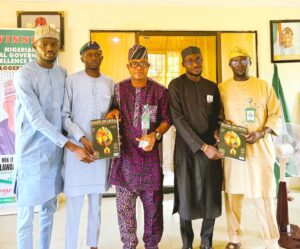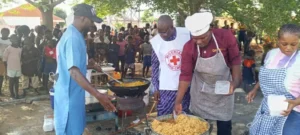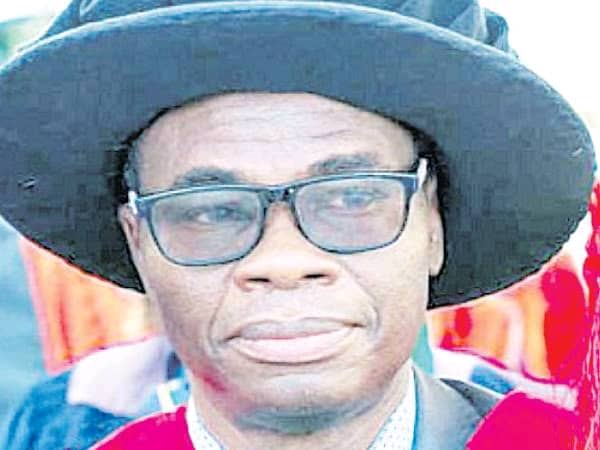
A Professor of Plastic Surgery and Burns at Ladoke Akintola University of Technology (LAUTECH), Ogbomoso, and the immediate past Chief Medical Director of UNIOSUN Teaching Hospital, Professor Peter B. Olaitan, has raised a strong call to action for both government authorities and the Nigerian public to urgently address the growing wave of fire disasters linked to petroleum products.
He made this call during the 3rd Faculty Lecture of the Faculty of Clinical Sciences at LAUTECH, which he delivered on Tuesday, June 11, 2025.
In his lecture titled “Stop the Road Carnage through Petroleum Products-Related Fire Disasters,” Prof. Olaitan traced the tragic history of fuel-related fire incidents in Nigeria back to the 1998 Jesse pipeline explosion in Delta State, which claimed over 1,000 lives.
Since then, he noted, the country has continued to experience similar deadly incidents resulting from tanker crashes and pipeline vandalism, many of which are exacerbated by the dangerous practice of citizens scooping fuel from accident scenes.
He emphasized the need for public education to discourage people from approaching such hazardous sites, pointing out that this behavior has directly contributed to the high number of casualties.
According to data presented by Prof. Olaitan, Nigeria recorded 2,404 tanker accidents between 2010 and 2017, resulting in 3,445 deaths.
He described the 2024 tragedy in Majia, Jigawa State, where 181 people lost their lives, as one of the most devastating tanker-related disasters in recent memory.
He identified several underlying causes for these frequent accidents and the resultant loss of life, including reckless driving by tanker operators, poor road conditions, lack of adequate driver training and certification, use of aging and poorly maintained trucks, non-adherence to road traffic safety regulations, and failure to follow standard haulage safety practices.
Prof. Olaitan recommended a multi-pronged approach to addressing the crisis. These include improving road safety enforcement, investing in modern road infrastructure, ensuring drivers undergo rigorous training and certification, and encouraging the use of newer, safer tankers.
He stressed the need for the Nigerian government to prioritize the use of rail transportation for moving petroleum products as a safer alternative to road haulage.
He also called for the prompt reporting of tanker accidents and for security agencies to cordon off such sites at least 500 meters away to prevent public encroachment.
Additionally, he advised that pipelines must be regularly serviced and secured to prevent vandalism.
The lecture also touched on the growing number of domestic fire incidents, many of which are linked to petroleum-based appliances such as gasoline-powered generators and liquified petroleum gas (LPG).
Prof. Olaitan urged Nigerians to adopt better safety practices in their homes, including the careful use of kerosene stoves and lanterns, installing fire extinguishers and smoke detectors, and piping cooking gas from outside the kitchen rather than storing gas cylinders indoors.
He advocated for the widespread adoption of alternative energy sources, such as solar power and rechargeable lamps, to reduce reliance on petroleum-powered generators and, by extension, prevent avoidable domestic fire disasters.
Present at the lecture were the Vice-Chancellor of LAUTECH, Professor R.O. Ron Kalilu, who was represented by the Deputy Vice-Chancellor (Academics and Innovation), Professor Dauda Araromi; the University Registrar, Dr. (Mrs.) Olanike Olayinka Balogun; the Provost of the College of Health Sciences, Professor Wale Adeyemi; and the Dean of the Faculty of Clinical Sciences, Professor (Mrs.) Adenike IyanuOluwa Olugbenga-Bello, who hosted the event.
Also in attendance were senior professors of the university, consultants, staff of UNIOSUN Teaching Hospital, Osogbo, and members of the general public.

